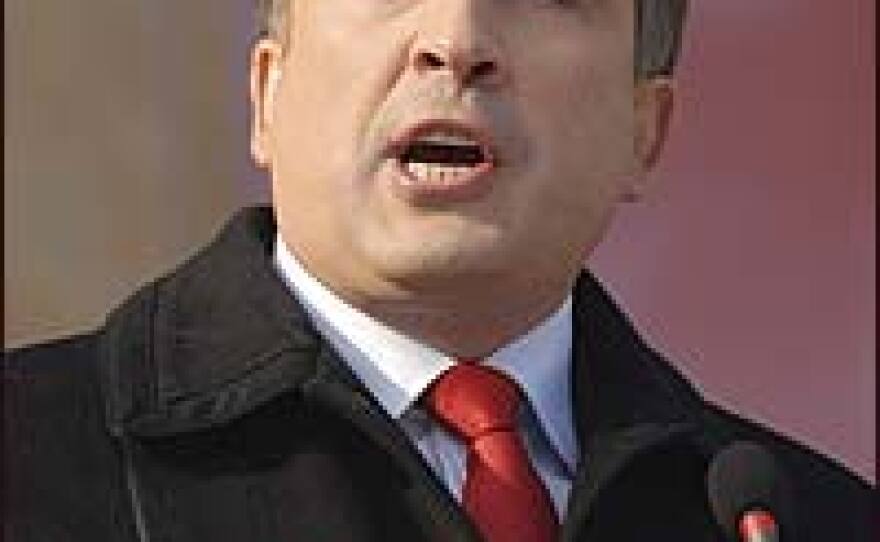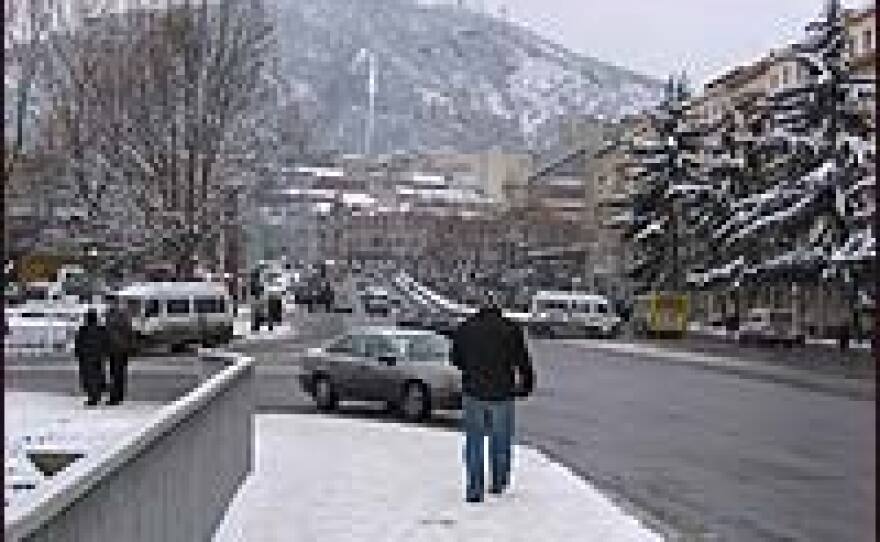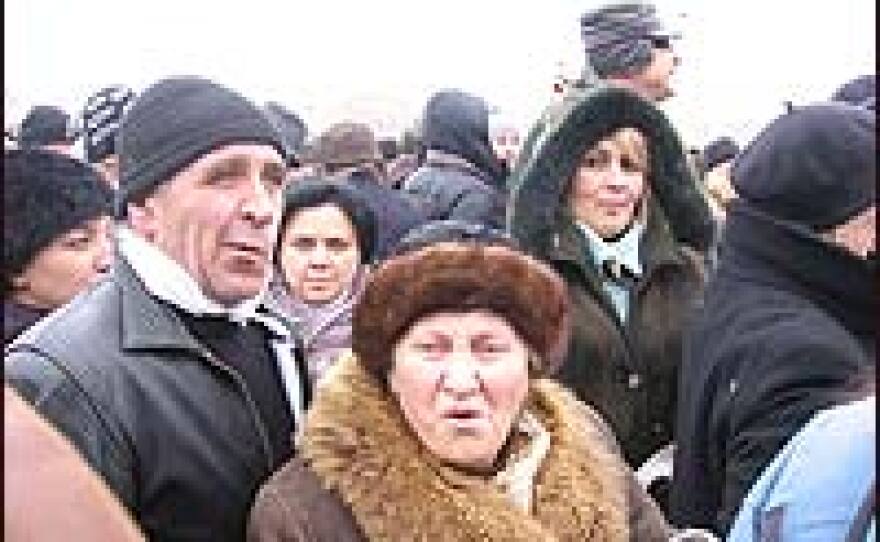


Opposition groups in the former Soviet republic of Georgia are continuing to dispute Mikheil Saakashvili's re-election as president last month.
Saakashvili may have hoped the election would help lessen his country's political divisions, but this is a country with strong political feelings.
Many of the president's critics say he's an autocrat who doesn't care about the welfare of the Georgian people, but his supporters credit him with reforming a failing post-Communist state.
The Revival of Tbilisi
On one of the narrow, winding streets of Tbilisi's old town, nestled between the Mtkvari River and the steep, picturesque foothills of the Caucasus Mountains, there are new, hip cafes amid the old houses with their enclosed wooden balconies.
Tbilisi has always seemed surprisingly cosmopolitan, but five years ago it was literally crumbling. Now, it's coming back to life.
Inside one cafe, waiter Vassilii Ameridze says the number of customers is growing.
"Life is changing for the better... but in some ways it's more difficult," he says. "We're becoming more like Europe. Now you have to work hard and prices for everything are rising."
Georgia's Progress
Ameridze credits Saakashvili for changing the country's course since the Rose Revolution of 2003. The president is liberalizing the economy, cracking down on corruption, building roads – and Saakashvili says his country has become a beacon for other post-Soviet states.
"We are a democracy in the region where democracy is not meant to be," Saakashvili says. "We are an economic success story in a region where there were only stories of failures lately. And we are a country with vibrant civil society where civil society was not the most natural thing to have."
But Georgia still has a very long way to go. Many Georgians, especially in the countryside, still live in poverty.
And Georgia's former imperial master Russia is furious over Saakashvili's push to join NATO and integrate with the West. Moscow backs two separatist regions inside Georgia, but when Russia enacted an economic blockade against Tbilisi in 2006, it backfired by helping force economic reform. Saakashvili says the economy grew 13 percent last year.
Concerns About the Future Remain
In a dusty, vaulted wine cellar underneath a shop on Tbilisi's main thoroughfare, owner Vasha Ularjishvili moves bottles of sparkling wine to encourage the aging process. Ularjishvili says his business selling Georgia's most famous product is doing all right but it's not growing because the authorities aren't doing enough to help average Georgians.
"There are only very rich and poor in this country," he says. "There's no middle class to buy our products. There may be a lot of construction now ... but there was a lot of building under the Soviet Union, too."
Saakashvili's critics say the president exposed his authoritarian nature last November, when he ordered riot police to violently break up a peaceful protest — a move that shocked Georgia's Western allies.
Saakashvili called last month's election to defuse the political crisis and reassert his authority. His supporters admit he made decisions without consulting others but say the protests taught him to work with his opponents.
Inside a small house in a quiet residential suburb, members of the Kamushadze family clink glasses of dark local wine over a traditional Georgian toast to good health. Bank worker Verika Kamushadze says she's among the many Georgians whose lives have improved under Saakashvili.
"I'm happy because I have a steady job that pays a decent salary," she says. "When I come home late at night, I'm no longer afraid. The street lamps work and there are police patrols. You just can't compare Georgia today with what it used to be like."
The Kamushadzes say Georgia considers itself a part of Europe. But many here believe whether this country's reforms ultimately succeed isn't up to the president —it depends on the Georgian people and whether they want to modernize their country.
Copyright 2022 NPR. To see more, visit https://www.npr.org. 9(MDAzMjM2NDYzMDEyMzc1Njk5NjAxNzY3OQ001))







